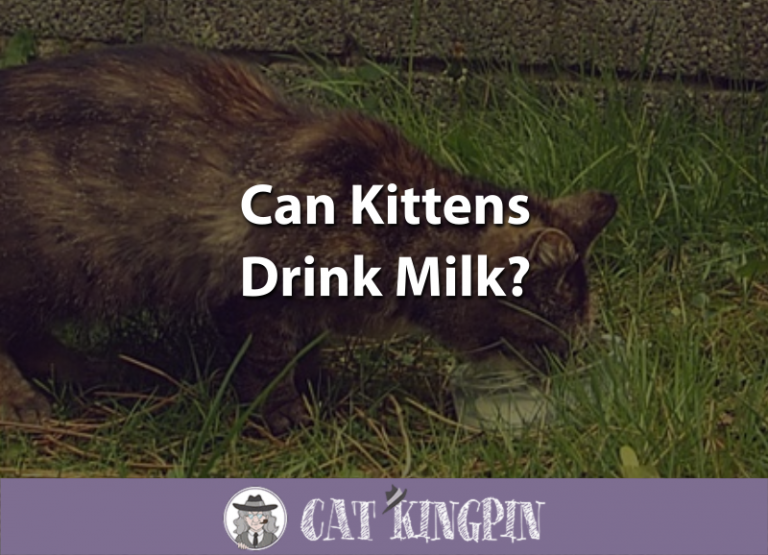Can Cats Eat Yogurt?
Do you feed your cat the occasional scoop of yogurt once in a while? Sure, it’s healthy for you. But, is it really healthy for your cat?
Adult mammals are biologically not designed to consume dairy products after their weaning stages. Particularly, carnivorous pets such as our cats who eventually lose their ability to digest the sugars in dairy products (milk, cheese, etc).
Nevertheless, there are some adult cats who are actually able to dairy products and all its derivative’s quite well. So, can your cat eat yogurt? This question is almost as common as can your cat eat ice cream.
In this article, we will cover:
- Physiology of a Cat’s Digestive System
- What About the Different Types of Yogurt?
- What About the Probiotics?
- Can Kittens Eat Yogurt?
- What Can You Feed Your Cat Instead?
Physiology of a Cat’s Digestive System
Cats are termed “obligate carnivores” which means that they thrive on protein rich diets and so they require very little carbohydrates for energy. Lactose is the key carbohydrate found in yogurt and it is composed of two single sugar molecules (galactose and glucose).
Lactose itself is broken down into its two sugar molecules by the enzyme lactase and is thus absorbed by a cat’s small intestine. However, as a cat progresses to adulthood then the enzyme activity and production of lactase slowly decreases.
So, what would this mean for your cat?
First, the now undigested lactose travels down into the large intestine where it draws in water from the surrounding tissue. Thus, your cat may experience diarrhea due to the flow of water out of the body.
Secondly, as the large intestine is relatively rich in micro flora (bacteria) these bacteria will indulge in the lactose and break it into short chain fatty acids and gases such as carbon dioxide, methane and hydrogen. As result, pressure within the abdominal cavity will increase resulting in colic and bloat.
In other words, cats can technically have yogurt as it won’t kill them, but it isn’t just that simple.
What about different yogurts and flavor types?
There are a lot of different types of yogurts out there and obviously different variations can have different guidelines.
Can Cats Eat Greek Yogurt?
As you can see here this cat seems to be enjoying its yogurt but effects of its yogurt consumption may only be seen after a few hours.
As long as its plain yogurt with no additives such as sugars then it should be fine to treat them once in awhile in small amounts. This is because; Greek Yogurt often involves the straining of whey protein from the milk derivative. As such lactose concentrations will often be lower in Greek yogurt than in regular yogurt.
This is because whey protein tends to be high in lactose and studies suggest that lactose has a digestibility of 0% to 60% which indicates why adult cats may have issue digesting regular yogurt.
But before you decide to feed your cat yogurt you need to consider the possibility of sugar additives. Most people don’t know this, but cats don’t have taste receptors for sweetness. So, they cannot develop a taste preference to that sweetness.
That said, by accidentally, feeding sweetened yogurt you may increase your cat’s risk of diabetes progressively.
Can Cats Eat Vanilla Yogurt?
If it’s Greek vanilla yogurt and has low sugar, then it is possible. If it’s plain vanilla yogurt full of sugar, it’s not a good idea.
Can Cats Eat Yogurt Covered Raisins?
You may also find Greek yogurt containing dried fruits like raisins. You need to be careful with these as raisins for example are highly toxic to cats and can result in renal failure.
Can Cats Eat Yogurt Drops?
I’ve heard of owners feeding their cats yogurt drops designed for pet consumption and yogurt drops designed for children.
I personally would not recommend any of these treats even if it suggests that it is “suitable” for pet consumption. The reason being is that, as I mentioned previously, cats don’t have taste receptors for sweetness so it does not affect their preference in food and it only affects their health.
What About the Probiotics?
Yogurts contain different bacterial cultures such as Lactobacillus bulgaricus ,Streptococcus thermophiles, acidophilus and Bifido. All of these are bacteria found in the stomach of humans.
That said, it’s hard to make a claim suggesting that the probiotics in yogurt may benefit a cats immune health as bacteria are species specific.
However, L.Acidophilus is a lactic acid bacteria that is indeed found in a cats’ gut. Studies have shown that direct administration of this particular strain of bacteria results in better immune health for a cat.
However, its important to note that this was a direct supplement with a higher concentration which resulted in better immune health, not necessarily bacteria in a spoonful of Yogurt.
Can Kittens Eat Yogurt?
Though it’s not recommended for cats, some may wonder if kittens are any different than cats. In other words, is it possible for a kitten to eat yogurt without having a similar impact. The answer is a resounding no. In fact, kittens bodies are still developing and the sugar can have a major impact on them, even more than it does on adult cats.
If it is a sugarless yogurt, one could argue that it would be safer, but I still don’t recommend feeding yogurt to kittens regardless of the composition of the yogurt itself. What might be a better idea, however is giving your kitten goat’s milk.
What Can You Feed Your Cat Instead?
There are many over-the counter healthy treats available for your cat to munch on. Rather than yogurt, you can give them healthy alternatives such as freeze-dried treats which are primarily protein based and contain only a single ingredient.
Whole life found here is one great example and it comes in three known different flavor’s like salmon, turkey and chicken.
Weruva and Purebites are two other options of freeze-dried treats available for North American pet owners.
If however, you feel the need to treat your cat with yogurt then you can possibly use an alternative such as goat’s milk. The Honest Kitchen has one for cats that you can find here.
Or, you can also try Cat Sip which is pre-treated with lactase to break down the milk prior to your cat getting it.
Remember, every cat has a different level of tolerance. Always provide a small quantity of the treats mentioned above before you decide to continue with the whole serving size.
Conclusion
Physiologically adult animals are very often lactose intolerant, more often than humans. And this is just a biological factor that implies that as animals age they no longer require lactose in their diet.
But to answer the final question on “Can cats eat yogurt?” Then my answer to owners is ”Maybe”. If you feed your cat very small amounts of plain Greek Yogurt with no added sugar or dangerous fruits like raisins and if your cat is able to tolerate lactose in their diet then yes an occasional spoon of yogurt should not result in any problems.
However, this is a game of luck as very few cats can tolerate high levels of lactose.
If you have yogurt with any sweeteners and do plan on feeding this to your cat on a regular basis then be cautious and aware of the possible side effects.
If you do decide to feed yogurt based treats such as the drops then read the ingredients! as sugar may be added.
Have you fed your cat yogurt? What has your experience been? Any questions? Let me know below.







